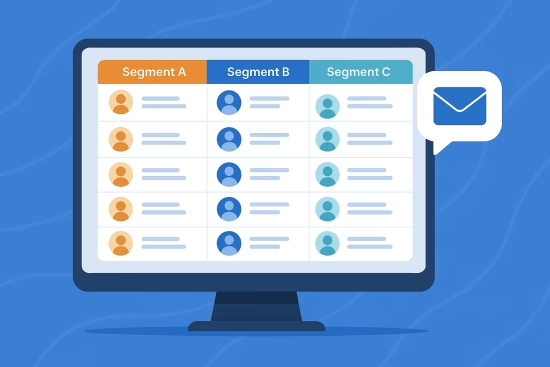
Table of Contents
El correo corporativo se ha convertido en el eje central de la comunicación empresarial, sirviendo como un conducto vital para la transferencia de información y la colaboración interna. Este tipo de correo electrónico, específicamente diseñado y gestionado para empresas, no solo facilita la comunicación eficiente entre colegas, sino que también es un almacén de datos críticos y documentos sensibles. Sin embargo, este recurso invaluable también enfrenta una serie de amenazas que pueden comprometer la seguridad y confidencialidad de la información empresarial. En este artículo, exploraremos las principales amenazas que acechan al correo corporativo.
Phishing Específico para Empresas
Los correos corporativos y los correos personales comparten algunas vulnerabilidades comunes, pero los correos corporativos a menudo son objetivos más atractivos para ciertos tipos de ataques debido a la cantidad y naturaleza de la información confidencial que pueden contener.
El phishing específico para empresas, también conocido como spear phishing, representa una forma más avanzada y dirigida de ataques cibernéticos que apunta directamente a empleados de una organización en lugar de realizar un ataque masivo y genérico. En lugar de enviar correos electrónicos de phishing a una amplia audiencia, los ciberdelincuentes personalizan sus mensajes para engañar a empleados específicos, aprovechando información detallada sobre la empresa y sus empleados. Estos ataques van más allá de los enfoques genéricos, haciendo que la identificación sea más difícil y el impacto potencialmente más perjudicial.
En un ataque de spear phishing, los delincuentes pueden investigar cuidadosamente a sus objetivos, recopilando información de fuentes públicas o incluso desde dentro de la organización. Pueden utilizar detalles específicos sobre proyectos en curso, jerarquía corporativa, nombres de colegas y otros datos que solo alguien familiarizado con la empresa poseería.
Los correos electrónicos de spear phishing a menudo se presentan como comunicaciones legítimas dentro del contexto empresarial, como mensajes de compañeros de trabajo, superiores o incluso departamentos de recursos humanos. Estos mensajes engañosos buscan persuadir al destinatario para que realice acciones específicas, como hacer clic en enlaces maliciosos, proporcionar credenciales de inicio de sesión o incluso transferir fondos.
Ransomware Dirigido a Empresas
A diferencia de los ataques genéricos, el ransomware empresarial está diseñado para maximizar el impacto, apuntando a organizaciones específicas con la intención de obtener recompensas financieras significativas.
Este tipo de ataque suele iniciarse mediante la infiltración del sistema informático de la empresa. Los atacantes pueden aprovechar vulnerabilidades en la seguridad, utilizar correos electrónicos maliciosos o incluso emplear técnicas de ingeniería social para acceder a la red empresarial. Una vez dentro, despliegan el ransomware, un software malicioso diseñado para cifrar archivos esenciales.
Tras el cifrado, los atacantes envían un mensaje de rescate, generalmente a través de un mensaje emergente en la pantalla de la víctima o mediante un correo electrónico. Este mensaje exige el pago de un rescate, a menudo en criptomonedas, a cambio de la clave de descifrado necesaria para recuperar los datos. La presión adicional radica en la amenaza de divulgar información confidencial si el rescate no se paga.
Las consecuencias de un ataque de ransomware dirigido a empresas pueden ser catastróficas, desde la pérdida de datos críticos hasta la interrupción significativa de las operaciones y la pérdida de la confianza del cliente.
Suplantación de Identidad (Spoofing):
La suplantación de identidad empresarial, comúnmente conocida como Business Email Compromise (BEC), representa una sofisticada amenaza que se dirige específicamente a empresas y organizaciones. Este tipo de ataque va más allá del phishing convencional al comprometer la integridad de los correos electrónicos comerciales, donde los hackers buscan aprovechar la confianza existente entre los empleados e interrumpir la seguridad financiera de la empresa.
En un escenario típico de BEC, los atacantes logran acceder o suplantar cuentas de correo electrónico empresarial legítimas. Estos correos electrónicos, que parecen provenir de ejecutivos de la empresa, departamentos financieros o socios comerciales confiables, buscan persuadir a los destinatarios a realizar transferencias de fondos, divulgar información financiera confidencial o llevar a cabo acciones que podrían tener consecuencias financieras graves.
Los atacantes suelen emplear tácticas de ingeniería social y técnicas de suplantación de identidad para hacer que los correos electrónicos falsificados sean prácticamente indistinguibles de las comunicaciones legítimas de la empresa. Pueden aprovechar la información previamente recopilada sobre la empresa, sus procesos y su personal para aumentar la efectividad del engaño.
Filtración de Datos Sensibles
Este tipo de incidentes no solo puede resultar en la pérdida de la confianza del cliente, sino que también puede acarrear consecuencias legales y financieras significativas para la organización.
La filtración de datos puede ocurrir de diversas maneras, desde brechas de seguridad y ataques cibernéticos hasta la pérdida o robo físico de dispositivos que contienen información sensible. Los datos filtrados pueden incluir información personal, datos financieros, estrategias comerciales confidenciales y otra información propietaria que pueda ser explotada o utilizada de manera perjudicial por actores externos.
La prevención de la filtración de datos sensibles es primordial para cualquier empresa que busque resguardar su integridad y la confianza de sus partes interesadas. La implementación de prácticas sólidas de seguridad de la información, como el cifrado de datos, el control de acceso, la monitorización de la red y la formación constante del personal, contribuye significativamente a mitigar el riesgo de filtraciones.
Con la comprensión detallada de tácticas las organizaciones pueden fortalecer sus defensas y enfrentar estos desafíos de manera proactiva. Para afirmar la seguridad continua de tus comunicaciones electrónicas, considerar la adopción de servicios de correos corporativos confiables es una decisión clave. Ten en cuenta que estas son solo algunas de las amenazas, y el panorama de ciberseguridad está en constante evolución. Mantenerse informado sobre las tendencias y amenazas emergentes es fundamental para una defensa sólida. En Clickpanda, como proveedores de servicios web, ofrecemos soluciones robustas y seguras para satisfacer las necesidades únicas de tu empresa. Protege tu información, fortalece tu seguridad y dá el siguiente paso hacia una comunicación empresarial más segura adquiriendo nuestros servicios de correos corporativos.







